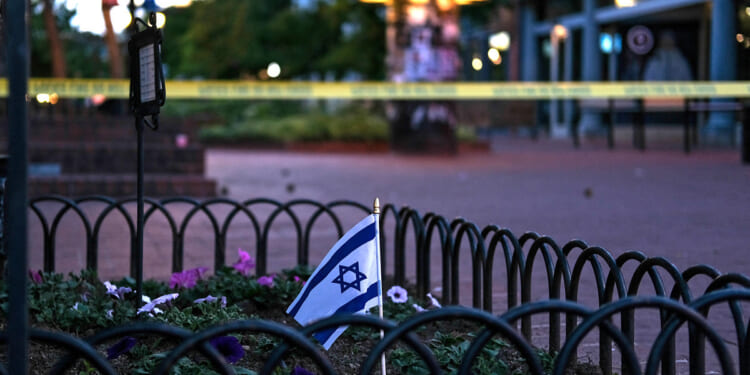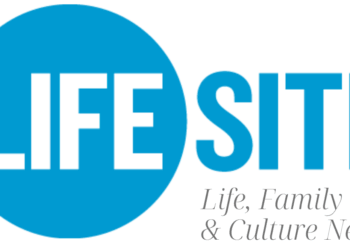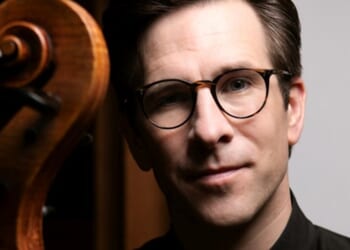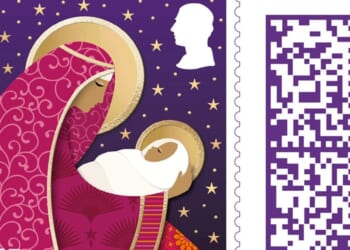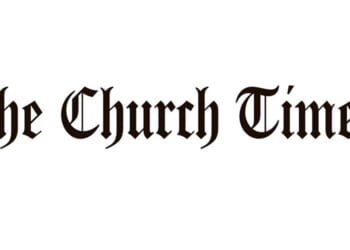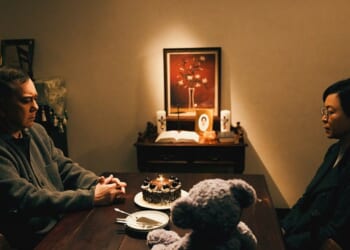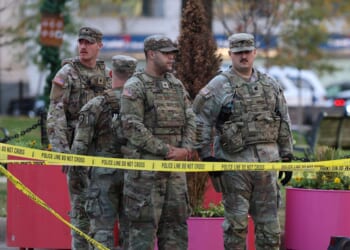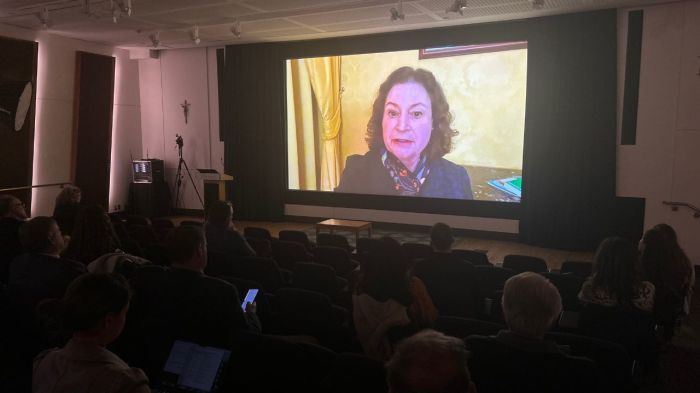
WASHINGTON — Online antisemitism is “the new pornography,” author Mary Eberstadt warned at a 60th anniversary celebration of “Nostra Aetate,” where Catholic and Jewish leaders reflected on the declaration’s lasting impact on interfaith reconciliation and the need to confront Jew hatred.
On Tuesday, The Philos Project and the Saint John Paul II National Shrine organized an event marking the Second Vatican Council’s “Nostra Aetate” declaration, promulgated by Pope Paul VI in 1965 and serves as a “Declaration on the Relation of the Church to non-christian religions.”
The declaration condemned antisemitism, repudiating the charge of collective Jewish guilt for the death of Christ, and it affirmed the spiritual connection between Christianity and Judaism, as well as God’s enduring covenant with the Jewish people.
Eberstadt, author of Primal Screams: How the Sexual Revolution Created Identity Politics and senior research fellow at the Faith and Reason Institute, addressed the impact of the Hamas-led terrorist attack against Israel on Oct. 7, 2023. She stated that the attack, followed by Israel launching military operations in Gaza, has “unleashed antisemitic warfare in critical corners of the West,” including on college campuses and on social media.
“Antisemitic trolling attracts attention for the same reason that car accidents attract rubbernecking, because of sick fascination,” the author said about online antisemitism during the panel, “My Brother’s Keeper: Christians and the New Antisemitism.”
“It’s not a good look for anyone, but especially for Catholics,” she continued. “To those young Catholics who are building the church of tomorrow, look away.”
The author, who holds the Panula Chair in Christian Culture at the Catholic Information Center, didn’t mention names, but she warned of influencers who “wave the Christian flag and cynically exploit Jew hatred to increase their followers.”
One of these commentators broadcasts conspiratorial messages by trying to portray it as investigative journalism, according to Eberstadt, while another “liquidates his intellectual capital to build a Jew-hating base.” Eberstadt also warned that there are influencers who exploit the phrase “Christ is King” by using it as “a perverted shorthand for antisemitism.”
The writer suggested a new way for Christians to think about online antisemitism, comparing it to pornography, which she described as “another villain that slithers around the internet.” In the case of online pornography, Eberstadt asserted that society has experienced a “moral turnaround” on the issue.
“That turnaround is important,” the Christian author stated. “Not long ago, there was a libertarian near-consensus about pornography, insisting that it was harmless. Even most Christians didn’t speak up against the stuff because they didn’t want to be treated like religious freaks.”
As more and more people started to see how online pornography can harm relationships, men and children, Eberstadt explained, the “laissez-faire consensus” began to collapse.
“And today, tradition-minded Christians, above all other groups, are leaders of a counterculture that understands the dangers of pornography and fights to keep themselves and their loved ones away from it,” Eberstadt stated.
“Online antisemitism is the new pornography,” she asserted. “It is moral pornography, and pornography it is. Because, like pornography, internet antisemitism is mostly engaged in secretly.”
“It delivers illicit thrills to degraded users, and its consumption embarrasses users when it comes to light, as is seen whenever people are exposed in public for viewing Jew hatred,” Eberstadt stated.
The author and essayist called on Christians “who were in the forefront of understanding that pornography causes harm [to] be in the forefront of opposing the moral pornography of antisemitism.”
Drawing on historical Catholic leaders such as Fulton J. Sheen, Cardinal John O’Connor and Pope John Paul II, Eberstadt emphasized that antisemitism is not only a violation of Church teaching but an affront to Christianity itself.
“To hate the Jews is to hate the Christians,” she said. “To hate your Jewish brother is to hate your Catholic self.”
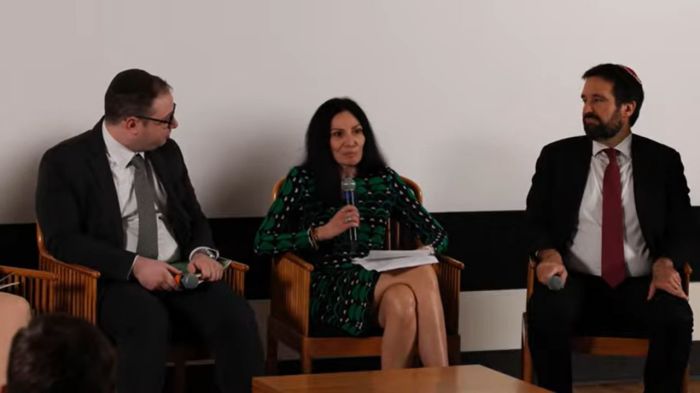
Another speaker at the event, Yael Freimann, a Jewish woman and organizational culture expert, described “Nostra Aetate” as “a monumental shift from suspicion to solidarity.”
Freimann spoke during a panel discussion titled “Why Should I Care About Jewish-Catholic Relations?” moderated by Phillip Dolitsky, a strategic advisor at The Philos Project. The panel also featured Philos Catholic Director Simone Rizkallah, journalist Kathryn Wolf, Rabbi Joshua Stanton and Family Institute of Connecticut Action president, Peter Wolfgang.
“This was seismic,” Freimann said about “Nostra Aetate” during the panel discussion. “It planted the seeds because … you’ve got to operationalize it in order for it to be successful. And, you know, cultural transformation doesn’t happen by decree.”
“It’s the slow work of human relationships,” Freimann explained. “And it happens with the stories that we tell each other about change, and it happens when curiosity replaces assumption.”
Freimann reflected on how her family experienced that transformation firsthand, recalling her grandparents’ decision years ago to send her mother to a Jesuit school.
When Freimann’s mother, the only Jewish student at that Catholic school in Mexico, arrived on the first day, her classmates teased her by asking where her horns were, referencing an antisemitic myth. The Jewish speaker highlighted her mother’s experience as an example of the “power of century-old myths” and how “they stick.”
“But then something simple and transformative happened,” Freimann said. “They got to know her, and these are still some of her closest friends today. Curiosity replaced that caricature, and the relationship replaced fear. And that’s cultural change at its most human level.”
She also recounted how a Catholic priest saved her grandfather’s life during the Holocaust by helping him hide in a forest in Belgium.
“This priest not only protected his life, he protected his identity. He made sure that my grandfather continued practicing his Hebrew prayers, continued learning Hebrew, and knew who he was,” Freimann said.
“He always reminded him, ‘You are Jewish, don’t forget who you are,'” she recalled. “That takes profound courage and profound respect.”
Samantha Kamman is a reporter for The Christian Post. She can be reached at: samantha.kamman@christianpost.com. Follow her on Twitter: @Samantha_Kamman

